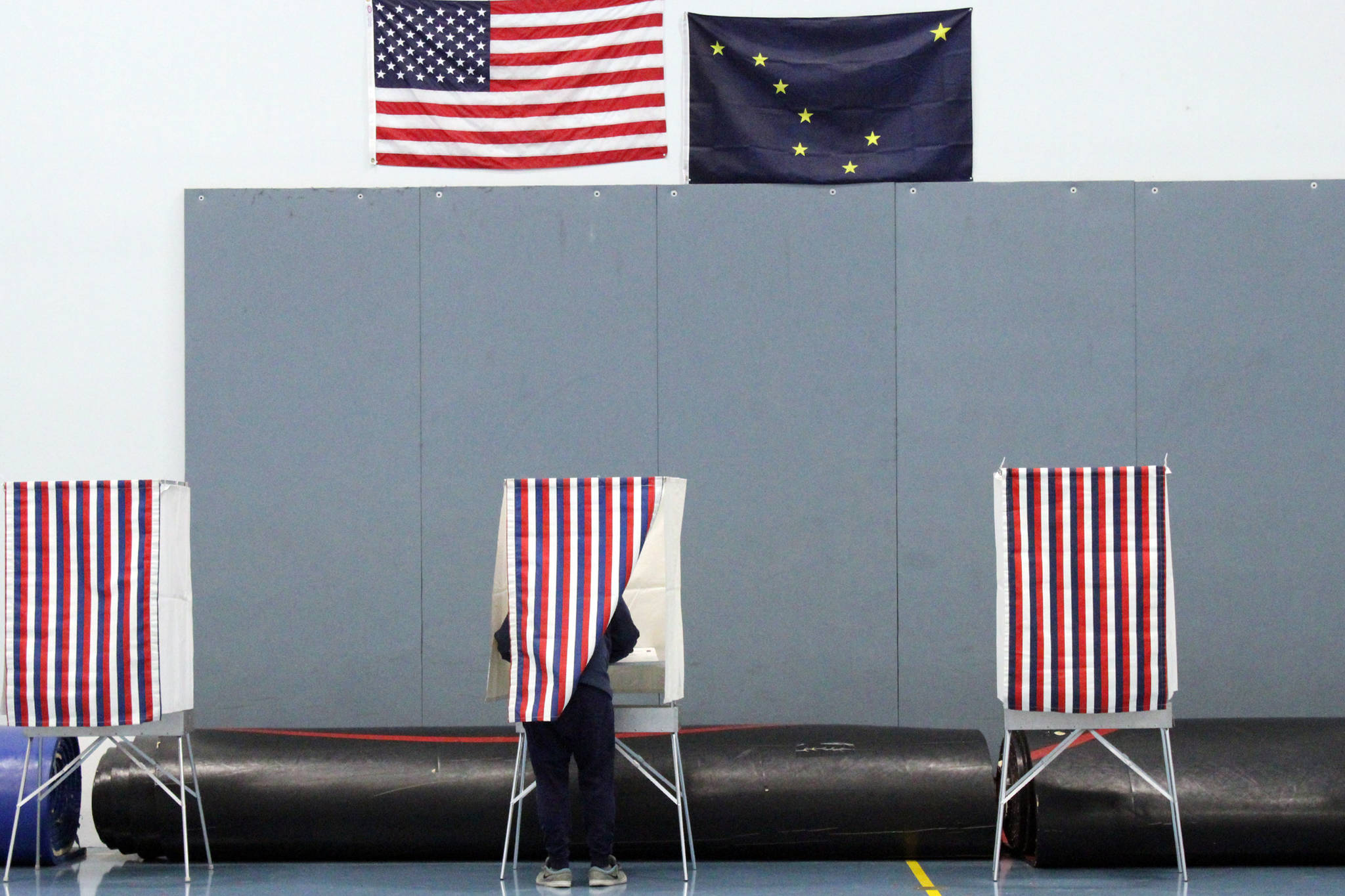With over 110,000 ballots still to be counted, the Alaska Division of Elections did not declare any winners Tuesday night, but it did release unofficial results of early and Election Day voting in the state.
Late in the evening, Alaska’s incumbent Republicans held a healthy lead over their challengers, but no one conceded defeat or declared victory.
The Senate
“We’re not there yet,” said Republican Sen. Sullivan said in a speech to supporters posted to social media, “but it’s looking pretty good.”
Sullivan was ahead in the race for U.S. Senate as of 11:05 p.m. according to preliminary results from the state. With just over 45% of precincts reporting, Sullivan was leading Al Gross with 81,524 or 61.58% of counted votes to Gross’ 44,546 or 33.65%. Gross is an independent who secured the Democratic nomination for the Senate.
Sullivan was elected in 2014 after serving as Alaska Attorney General and Commissioner of the Department of Natural Resources.
Gross ended his night early but told supporters in Anchorage he was hopeful about the coming days.
“Victory is within reach,” Gross said in a statement to supporters Tuesday. “It is within reach because of the literally tens of thousands of Alaskans who have mailed in their ballots so their voices can be heard — and those votes must be counted.”
Gross, is a newcomer to politics but is the son of Avram Gross, Alaska’s Attorney General for most of the 1970s, and a former orthopedic surgeon.
Also on the ballot for Alaska’s Senate seat was Alaskan Independent Party candidate John Wayne Howe, who as of late Tuesday received 6,120 or 4.62% of the vote.
The House
Rep. Don Young, R-Alaska, was elected to the U.S. House of Representatives in 1973 and has been Alaska’s lone Representative ever since. As of 11:05 p.m., Tuesday, unofficial results showed Young leading Alyse Galvin 81,128 or 61.58% to 50,163 or 38.07%.
“Congressman Young’s hard-work and effectiveness on behalf of Alaska is recognized and looks like it has paid off again,” said Truman Reed, Young’s campaign manager in an email Tuesday night. “We’re optimistic and want to thank our friends and supporters around the state.”
The Galvin campaign did not immediately respond to request for comment. Galvin, an independent who secured the Democratic nomination for Alaska’s sole seat in the House, has never held political office and is a longtime education advocate.
Galvin came within seven percentage points in the 2018 election, the nearest any challenger had come to unseating Young in decades.
Ballot Measures
Measure 1, which would increase tax on Alaska’s oldest and most productive oil fields and was strongly opposed by the oil industry was behind in early results. At 10:24 p.m. Tuesday, unofficial results showed no votes were leading 82,416 or 63.72% to yes’ 46,929 or 36.28%
“I’m cautiously optimistic and cautiously pleased,” said Bill Corbus, volunteer with KEEP Alaska Competitive, who served as Alaska’s commissioner of revenue from 2003 to 2006 and has frequently written and spoken against the measure.
The measure’s supporters remained confident despite the early, unofficial numbers. David Dunsmore, campaign manager for Vote Yes for Alaska’s Fair Share, specifically cited the large number of uncounted absentee ballots as the reason for his optimism.
“It just remains to be seen,” Dunsmore said in a phone interview Tuesday night. “We didn’t expect to have a lead tonight. We were fully expecting to be behind because of the makeup of the electorate.”
Measure 2 contained three provisions to reform Alaska’s election process; open primaries, ranked-choice voting and additional financial disclosures. As of Tuesday night, no votes were ahead 71,958 or 55.76% to 57,097 or 44.24%.
“It’s late at night, but very early in the process of counting Alaska’s ballots,” said Scott Kendall with Alaskans for Better Elections. “Looking at our internal numbers and our position relative to other races we feel very strongly that we will be in the lead once all of those ballots are counted.”
Opponents for Measure 2 did not immediately return requests seeking comment.
More to come
Over 110,000 ballots won’t be counted for another seven days, according to Alaska state law, that’s about a third of the 318,000 total ballots cast, in person and otherwise, in the 2016 General Election. DOE has repeatedly cautioned that results may change in the coming days and that no results are final until certified by state officials.
• Contact reporter Peter Segall at psegall@juneauempire.com. Follow him on Twitter at @SegallJnuEmpire.

